INSIDE ISSUE 17.43 | Oct. 26, 2018
 NEWS: Lawmaker wants Uber, Lyft regulations to be reviewed for fairness
NEWS: Lawmaker wants Uber, Lyft regulations to be reviewed for fairness
BRIEFS: Voter numbers, debates, the nuclear option, more
CALENDAR: LIeutenant governor debate is MOnday
COMMENTARY, Brack: State should make it easier for people to vote
SPOTLIGHT: WREN
FEEDBACK: Request: A little fire in the belly
MYSTERY PHOTO: One tough mystery
S.C. ENCYCLOPEDIA: Eugene Robinson
NEWSNEWS: Lawmaker wants Uber, Lyft regulations to be reviewed for fairness

By Lindsay Street, Statehouse correspondent | What’s the difference between a radio and a smartphone app? A whole set of regulations depending on which kind of for-hire transportation service you use.
“It’s not a fair playing field anymore,” independent taxi driver Larry Smith of Charleston told Statehouse Report. “We can’t compete.”
Three years ago, the state enacted Uber-backed legislation that treats ride-sharing companies differently from the existing taxi companies.
More than $1.7 million in revenues have been reported from Uber and Lyft in the state since 2016. During that time, taxi cab drivers say their business has suffered under the difference regulations applied to the similar businesses, stifling one while allowing another to flourish.
Now, at least one lawmaker wants the state to reexamine how the state treats for-hire transportation.
“I’m all for fairness. I think everybody should be treated the same,” said S.C. Rep. Wendell Gilliard, D-Charleston. “Nobody should have priority above the other.”
A look back
State regulation of for-hire transportation services falls under the Office of Regulatory Staff, a utility public watchdog. In the transportation department, Tom Allen fields phone calls from taxi drivers upset by the double standards.
“They’re very bitter about Uber and Lyft. They can’t understand why they have to abide by these regulations and why Uber and Lyft have a different set of regulations,” said Allen, director of Safety, Transportation, and Emergency Response. “My response to them is, ‘I don’t disagree with you but I think you need to lobby the legislature for less regulation to make you more competitive.’”
Lobbying the legislature is exactly what the app-using transportation services did in South Carolina and across the country as Uber expanded operations.
The Transportation Network Companies Act (TNC) was passed in 2015. According to University of South Carolina Law Professor Bryant Walker Smith, who studies the ride-sharing industry, the law reads similar to those enacted in other states and supported by Uber.
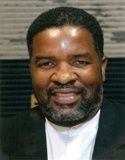
Gilliard and S.C. Rep. Raye Felder, D-York, were the only members of the House to vote against the TNC, which passed final reading 96-2. The Senate passed the act unanimously and it was signed into law by then-Gov. Nikki Haley.
“I knew it was going to have a major, major impact as far as the mom-and-pop (taxi service) longevity and, evidently, I was right,” Gilliard said.
The law established a minimum insurance requirements for companies like Uber, requires background screening standards for TNC drivers and fare transparency, electronic receipts and ease of identification of TNC vehicles and drivers.
The difference in regulations between the two entities are essentially this: Ride-sharing companies conduct their own background checks and regulate their drivers. Taxi companies, however, are directly regulated by the state, according to Allen. Uber and Lyft are also not beholden to permits and caps by municipalities, though they do provide a share of their earnings to them. Insurance requirements also vary among the models, Smith said.
Smith called the taxi business model the “legacy” and the ride-sharing business model the “disruptor.”
“They were pretty astute to describe themselves as something differently,” Smith said. “What these companies do is that they facilitate the provision of commercial rides … (But) they had political power that the taxi cab companies did not have or did not exercise. That’s the political realistic explanation as to why we have two different regimes.”
Uber spokeswoman Evangeline George of Atlanta released this statement at the request of Statehouse Report on the state’s current policy governing ride-sharing companies.
“Communities benefit from more choices, and Uber offers South Carolina residents both a reliable transportation option and a flexible work opportunity. More than 40 states across the country have passed statewide ridesharing frameworks similar to the one in South Carolina, outlining requirements and background screening standards for Transportation Network Companies.”
Levelling the playing field
Gilliard said he doesn’t have a solution in mind, but he said South Carolina should address the issue.
“I’m a strong believer in when you don’t get it right, you go back to the drawing board,” Gilliard said.
He wants to establish a subcommittee in the House to study the policy and legislative options.
“We have statistics. We know about the mistakes. So you come up with a better plan and compromise,” he said. “You can create a level playing field … That will take sitting down and compromising and making it work for everybody.”
Across the aisle and in the other chamber, S.C. Sen. Paul Campbell, who serves as executive director of the Charleston County Aviation Authority, said that while he sees taxi drivers’ plight, he’s not sure it’s a legislative fix but rather the market at work.
“I feel for (the taxi drivers),” Campbell said. But, he added, “We can’t tell a passenger they can’t use Uber.”
For Smith, the solution is simple.
“We should treat like things alike,” he said.
He said Finland has enacted legislation that solves the dilemma of treating the businesses differently. He described their new law on mobility as a service as:
“We really don’t care what you call yourself or how you’re transporting people, if you’re transporting people then this law applies,” Smith said. “If South Carolina adopted something like that, it wouldn’t matter if you were a (transportation network company) … or if you were even providing flying car service, you would be subject to the requirements of that law.”
Allen said he would like to see taxi companies moved under the TNC act.
“The regulatory requirements are about right (on Uber and Lyft),” he said. “The taxi and the other for-hire services could probably stand to lessen some of the requirements.”
- Have a comment? Send to: feedback@statehousereport.com
NEWS BRIEFS
BRIEFS: Voter numbers, debates, the nuclear option, more
By Lindsay Street, Statehouse correspondent | The number of voters registering in the months leading up to the midterms election is more than double that of 2014 with more than 90,000 registering from June 11 until Oct. 18, according to data from S.C. Election Commission.
![]() From May 30 to Oct. 9, 2014, about 42,000 people registered to vote. The 2018 number is only slightly less than the lead-up to the voter registration for 2016 presidential election: nearly 123,000.
From May 30 to Oct. 9, 2014, about 42,000 people registered to vote. The 2018 number is only slightly less than the lead-up to the voter registration for 2016 presidential election: nearly 123,000.
With that in mind, Statehouse Report wanted to know how many voters have been deemed “inactive” by the state. That means voters who are listed as deceased, convicted of a crime that makes them eligible to vote or who have not been active in the past two elections but have not responded to the state’s 2017 postcard on whether they would like to remain listed as an active voter (a prepaid response was included). Here are those numbers given to us by the S.C. Election Commission:
- Deceased: 45,924
- Convicted: 8,935
- Number of postcards sent in 2017: 275,000
- Number of listed inactive voters in S.C. (in other words, they did not respond to the postcard or vote in any recent elections): 194,134
S.C. Election Commission Director of Public Information Chris Whitmire said South Carolina doesn’t purge voters. Instead, they are listed as “inactive.” They remain on their county’s voter rolls for a few cycles and then be archived with the commission. Should they show up at an election after being archived, all that the precinct has to do is make a call to the commission and the voter will be allowed to cast his or her ballot.
Another interesting note in the registered voter data: 1.7 million women and 1.4 million men are registered to vote in the state.
In other statewide news:
Governor debates wrap up. Incumbent Republican Gov. Henry McMaster and Democratic challenger S.C. Rep. James Smith of Richland County had their final debate this week. See the archived debates here.
Base Load Review disappearing act. A 2007 state law soon could be overturned by a South Carolina judge. The Base Load Review Act allowed utilities to raise capital for projects on the backs of ratepayers, essentially birthing the public-private partnership between S.C. Electric & Gas and Santee Cooper to build two nuclear reactors. The reactors ran up a $9 billion bill before the utilities pulled the plug, and sticking customers with the bill. Read more about the looming decision here.
Ex-lawmaker in court. Former S.C. Rep. Jim Harrison, R-Richland, appeared in court this week as part of the ongoing corruption probe of the Statehouse. Harrison is the first elected official to go to trial and plead not guilty to charges levied against him. Read coverage here.
Watchdog drama. The Commission on Higher Education was in the news this week for an alleged unauthorized pay raise for its new director (former interim director) Jeff Schilz, who received more than $91,000 extra to his salary, which apparently was not authorized through a state panel that approves state agency leaders’ salaries. Senate Republican leader Hugh Leatherman called for Board Chair Tim Hofferth and Schilz to resign. Hofferth fired back and asked for an apology under threat of a lawsuit. Gov. Henry McMaster chided the CHE and asked for it to return the money. His Democratic opponent James Smith said if he were governor, he would have fired Hofferth. As the week closes, the drama is ongoing.
- Have a comment? Send to: feedback@statehousereport.com
LOOKING AHEAD: Lieutenant governor debate on Monday
![]() Staff Reports | Want more gubernatorial debates? The Republican and Democratic candidates for governor will appear on stage for a debate 7 p.m. Oct. 29 for the final gubernatorial-level debate before the Nov. 6 election.
Staff Reports | Want more gubernatorial debates? The Republican and Democratic candidates for governor will appear on stage for a debate 7 p.m. Oct. 29 for the final gubernatorial-level debate before the Nov. 6 election.
Republican Pamela Evette and Democrat Mandy Powers-Norrell will meet in a live televised debate hosted by recently retired University of South Carolina dean and former CNN senior Washington correspondent Charles Bierbauer at SCETV studios in Columbia.
Click below for other items coming up in the Statehouse:
BRACK: State should make it easier for people to vote
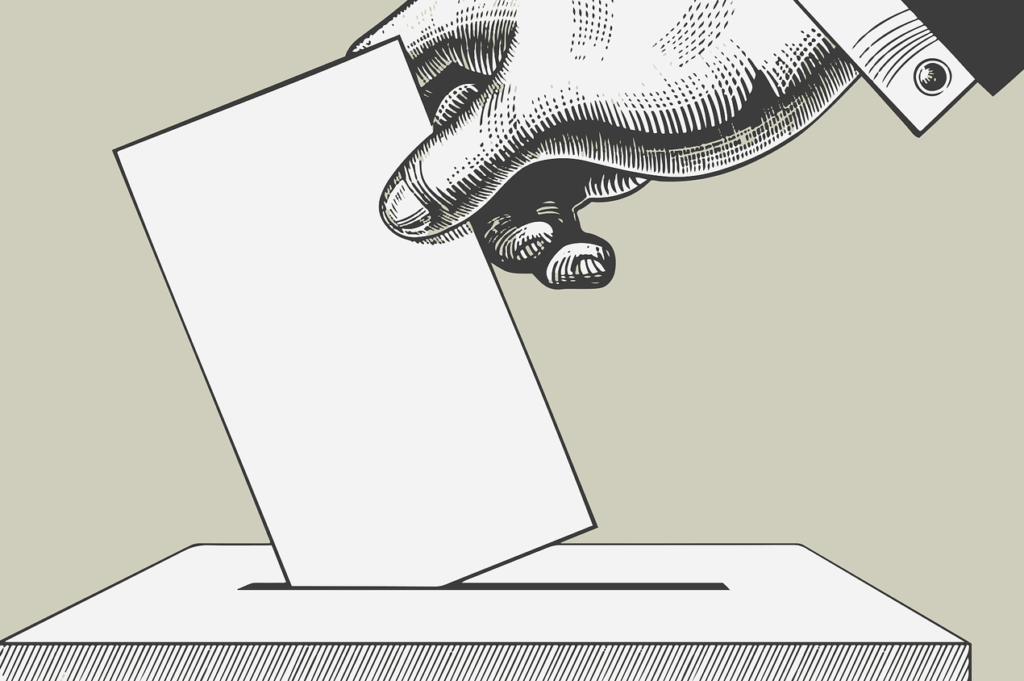
By Andy Brack, editor and publisher | South Carolina legislators should start thinking about voting like people now think about online transactions.
 Consider how you bought stuff 20 years ago: You got in your car, went to a store, bought it, lugged it home and stored it away until you used it. It took a long time and there were a lot of steps to make a successful purchase. Then came the Internet.
Consider how you bought stuff 20 years ago: You got in your car, went to a store, bought it, lugged it home and stored it away until you used it. It took a long time and there were a lot of steps to make a successful purchase. Then came the Internet.
At first, people were skeptical about providing private information — their name, address and credit card number — to an online company trying to sell stuff. But over time, they got more comfortable with it. Then came Amazon and a plethora of companies. Now with the click of a few buttons, it’s common for people in South Carolina to get a book or sweater or paper towels delivered from anywhere in the world.
Online transactions are now easy and safe. It just took us a while to get used to them. Now, we need to do the same for voting so more Americans can exercise one of their most precious rights in our democracy.
Unfortunately, lawmakers across the country often seem to try to make it more difficult to vote, despite lots of rhetoric.
In Georgia, a governor’s race is being fought over whether the state should purget ballots rolls and reject absentee ballots over minor discrepancies. These Georgia officials are making it harder to vote, just as South Carolina lawmakers did a few years back when they insisted on photo identification for voters. Why? Because they feared voter fraud when none existed.
For the last few cycles in Charleston County, officials have added regional polling places around the long, thin county so voters have more places to vote. Why? Because they said parking was horrible and the county’s election warehouse was too cramped for space needed to prep machines and train workers. When a voter turned up recently to vote, he was given a little grief about not being in one of the three absentee polling places, but eventually was allowed to vote.
“I have instructed staff to not turn folks away who wish to vote at our headquarters location. However, our office is not adequate to the large numbers of absentee voters that we have had at the three locations,” Charleston election director Joe Debney told Statehouse Report.
 Later, he added, “I strongly believe that we are giving more opportunities to voters by having off-site facilities. I have heard stories from voters from 2008 and 2010 when we had voting in our office. They have stated that they did not vote because of the limited parking and lines that went down Headquarters Road.”
Later, he added, “I strongly believe that we are giving more opportunities to voters by having off-site facilities. I have heard stories from voters from 2008 and 2010 when we had voting in our office. They have stated that they did not vote because of the limited parking and lines that went down Headquarters Road.”
Brady Quirk-Garvan, chair of the Charleston County Democratic Party, agreed: “We believe that the more people who exercise their right to vote, regardless of party, is a good thing. … The rest of the state should look to Charleston as an example of how to lead when it comes to voting and early absentee voting.”
Still, we’d argue state lawmakers need to overhaul state voting law by adopting more practices that make it easier to vote, such as:
Same-day registration. Revamp antiquated laws that require registration 30 days before an election. Computerization of elections makes it comparatively easy for someone to walk in with proper ID, register and vote on the same day. It’s working in Minnesota and other places.
Stop gerrymandering. If lawmakers would draw fair districts that reflect communities, people would have more confidence in the process and believe they had someone in the legislature who would listen. As it is, districts are drawn with so much partisanship that minority parties in a district feel left out.
Easier online voting. In the country that spawned Amazon, election officials ought to be able to make ubiquitous, simple, secure online voting better than voting on antiquated machines that have no paper trail and cost millions of dollars.
The next governor should appoint a comprehensive election reform commission to make it easier for all South Carolinians to vote. We need to come out of the dark ages on voting and get more people to the polls to make our democracy more reflective of what the people want.
- Have a comment? Send to: feedback@statehousereport.com.
SPOTLIGHT: WREN
 The public spiritedness of our underwriters brings Statehouse Report to you for free each week. This week, we shine a spotlight on the Women’s Rights and Empowerment Network (WREN), a South Carolina-based nonpartisan network created to build a movement to advance the health, economic well-being, and rights of South Carolina’s women, girls, and their families. WREN provides a strong, collective voice for South Carolina’s women and girls.
The public spiritedness of our underwriters brings Statehouse Report to you for free each week. This week, we shine a spotlight on the Women’s Rights and Empowerment Network (WREN), a South Carolina-based nonpartisan network created to build a movement to advance the health, economic well-being, and rights of South Carolina’s women, girls, and their families. WREN provides a strong, collective voice for South Carolina’s women and girls.
With its partners and members:
WREN advocates at the Statehouse for policies and laws that will improve the status of women.
WREN educates the public on issues that affect women and girls and seeks to inspire action.
WREN empowers people and strengthens organizations to support women and young people.
WREN builds coalitions of people and organizations committed to improving opportunities in South Carolina.
WREN convenes diverse voices, collects and disseminates research, and shares information about practical solutions to promote gender equality and improve our state’s health and economic vitality.
- To learn more, visit WREN online at: http://www.scwren.org
FEEDBACK
Request: A little fire in the belly
To the editor
![]() I haven’t followed the gubernatorial debates, but I can imagine your description of one as boring.
I haven’t followed the gubernatorial debates, but I can imagine your description of one as boring.
What is it with this state? Why can’t we find any pols with fire in their bellies? I can understand why McMaster doesn’t need to get fired up, but why can’t the Dems find a firebrand?
Trump doesn’t hesitate to yell from the podium; why can’t the Dems find a shouter of their own? I’m a Dem and I want my candidates to yell and get worked up when they’re in front of a crowd, not recite their talking points like they’re in church.
— Dan Ruck, Taylors, S.C.
Send us a letter. We love hearing from our readers and encourage you to share your opinions. But you’ve got to provide us with contact information so we can verify your letters. Letters to the editor are published weekly. We reserve the right to edit for length and clarity. Comments are limited to 250 words or less. Please include your name and contact information.
- Send your letters or comments to: feedback@statehousereport.com
MYSTERY PHOTO: One tough mystery
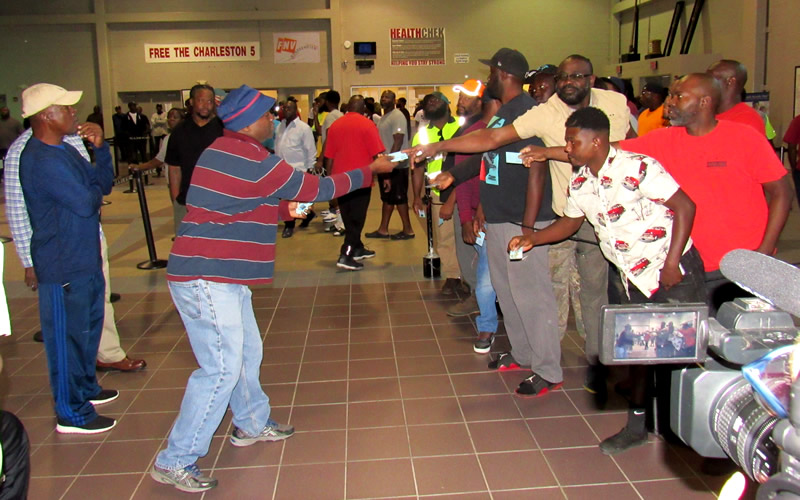
The Mystery Photo above might be one of the hardest we’ve ever published. What does it show and where (your hint) in Charleston is it? Send your guess to: feedback@statehousereport.com. And don’t forget to include your name and the town in which you live.
Our previous Mystery Photo
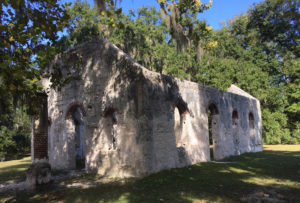 Our Oct. 19 mystery was a creepy-looking place, which is good for this time of year. The photo showed t he ruins of the St. Helena Parish Chapel of Ease just down the road from the Penn Center on St. Helena Island.
Our Oct. 19 mystery was a creepy-looking place, which is good for this time of year. The photo showed t he ruins of the St. Helena Parish Chapel of Ease just down the road from the Penn Center on St. Helena Island.
Hats off to several alert readers for identifying the old chapel: George Graf of Palmyra, Va.; Steve Willis of Lancaster; Don Clark and Bill Segars of Hartsville, David Lupo of Mount Pleasant; Charles Davis of Aiken; and Philip Cromer of Beaufort.
Graf provided more context from the Heritage Library at heritagelib.org: “When the Anglican Church in colonial South Carolina authorized the establishment of Chapels of Ease in St Luke’s and St. Helena’s Parishes, both in Beaufort County, they were following what had been for centuries a common practice in Great Britain. Chapels of Ease were intended to provide for the ease and comfort of parishioners living some distance from the main parish church.
“St. Helena’s Chapel of Ease was built in the 1740s to accommodate the planters who lived on St. Helena’s Island, which was some distance from the parish church in the town of Beaufort. The chapel, constructed of tabby and brick, is now in ruins…four thick walls remain with no roof or flooring…having been damaged in a forest fire on February 22, 1886. Tabby is a highly-textured cement made of oyster shells, lime, and sand, and its whiteness gave the chapel the nickname ‘White Church.’”
Segars wrote to remind us of a good point when visiting old church ruins: “Please remind your reader of a problem that exist with associating “haunted and spooky” with old buildings and structures in SC: Everyone may enjoy a good spooky story, particularly during the Halloween season. If you choose to visit this site or any other church or burial ground, please remember that these are sacred, reverent places. You are a guest here, with or without permission; please do not deface or vandalize any part of these properties. These juvenile acts are a costly problem for the people that love and hold these sites dear.”
Send us a mystery: If you have a photo that you believe will stump readers, send it along (but make sure to tell us what it is because it may stump us too!) Send to: feedback@statehousereport.com and mark it as a photo submission. Thanks.
S.C. ENCYCLOPEDIA
HISTORY: Eugene Robinson
S.C. Encyclopedia | Author, journalist, columnist and Pulitzer Prize winner Eugene Robinson is the son of Louisa Smith Robinson, a librarian at Claflin College, and Harold I. Robinson, an attorney and occasional professor of political science. Born in Orangeburg, Robinson grew up in a two-story clapboard house built by his great grandfather, Major John Hammond Fordham. He attended Trinity Methodist Church and studied at Felton Training School (later Felton Laboratory School) on the campus of South Carolina State University. In 1967 Robinson began the tenth grade at Orangeburg High School, becoming one of a handful of black students enrolled in the school only a few years after desegregation.
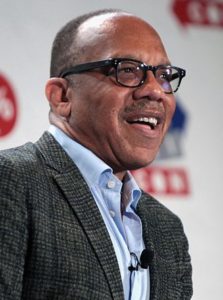
Several months into Robinson’s first year at Orangeburg High School, black students from Claflin College and South Carolina State were refused entrance into All-Star Lanes, a whites-only bowling alley. The event sparked protests. Governor Robert McNair blamed “outside agitators,” and police focused attention on Cleveland Sellers, a Denmark, South Carolina native and organizer for the Student Nonviolent Coordinating Committee (SNCC), who was staying a few houses down the street from the Robinson home. Robinson looked on as a dozen police cars parked outside of his home, the officers’ rifles aimed at the house down the street.
Robinson has called that moment “the first time [he] felt vulnerable” and “an awakening”; he has claimed that he no longer could think of “race as something [he] could just ignore. . . . The question was how to deal with it: how to cut it down to size, how to keep it in perspective, how to keep from being crushed by it. How to live with it.” Three days later, police opened fire on a group of protesting students, killing three, in an event that would later be dubbed “The Orangeburg Massacre.”
Robinson attended the University of Michigan in Ann Arbor, planning to study architecture. During his first architecture course, however, he recognized that he was “easily the most incompetent” student in the class. In the meantime, he won a student literary competition with an essay about the killings in Orangeburg. Predictably, he changed his academic focus to journalism. He wrote for the student newspaper, The Michigan Daily, all fours years of college, eventually becoming the first black student to be coeditor-in-chief.
Robinson began his journalism career at the San Francisco Chronicle where he covered the trial of newspaper heiress Patty Hearst. While living in the Haight-Ashbury District of San Francisco, he met his future wife, Avis, originally from Silver Spring, Maryland, who was in San Francisco completing postgraduate work.
In 1980 Robinson moved to Arlington, Virginia, to begin work at the Washington Post as a reporter covering city hall. He was named assistant city editor in 1981 and city editor in 1984. From 1988 to 1992, he was the Washington Post’s South American correspondent, based in Buenos Aires, Argentina. He was named the London bureau chief from 1992 to 1994 before returning to Washington to become the newspaper’s foreign editor. He was promoted to assistant managing editor in 1999 and managed the “Style” section of the newspaper. He became a regular columnist in 2005, eventually writing a twice-a-week column that reflects on the relationships between politics and culture. He also hosts a weekly online chat session.
During his tenure in Buenos Aires, Robinson spent time in Brazil—time that eventually led to the material for his first book, Coal to Cream: A Black Man’s Journey beyond Color to an Affirmation of Race, published in 1999. The New York Times described the book as a model for discussions of race. Simultaneously a memoir and a manifesto, Coal to Cream reflects on Brazilians’ fascination with the broad spectrum of skin color in the context of Robinson’s own experience in a world of two distinct races, both in the United States and elsewhere. In 2004 Robinson penned Last Dance in Havana: The Final Days of Fidel Castro and the Start of the New Cuban Revolution, in which the author anticipates a post-Castro Cuba and notes the embedded role that music and dance play in Cuban culture and politics.
Throughout the 2008 Democratic presidential primaries and, later, the presidential campaign, Robinson focused many of his newspaper columns on the rise of Barack Obama. Drawing on historical context and personal reflection, Robinson’s coverage of the Obama campaign provided a fresh perspective on race and politics while steadfastly avoiding the politics of identity. The columns earned Robinson a 2009 Pulitzer Prize for commentary.
Several of the columns cited for the 2009 Pulitzer Prize may have laid the foundation for Robinson’s 2010 book, Disintegration: The Splintering of Black America. In Disintegration, Robinson frames his discussion of contemporary black America by first identifying four discrete groups of black Americans: the Transcendent, the Mainstream, the Emergent, and the Abandoned. Robinson argues that the different interests and claims of each group must be acknowledged in order to respond with any success to the rapidly deteriorating plight of the Abandoned. The New York Times commented on the book’s ability to “tell us something familiar . . . in such a creative and clear-eyed way and with such force that we begin to see things differently.”
Robinson is a regular guest on television shows that focus on political commentary, including The Rachel Maddow Show, Hardball with Chris Matthews, Morning Joe, and Meet the Press. He was inducted into the South Carolina Academy of Authors in 2013. Eugene Robinson and his wife Avis are the parents of two sons: Aaron and Lowell. They live in Arlington, Virginia.
— Excerpted from an entry by Karl Fornes. This entry hasn’t been updated since 2006. To read more about this or 2,000 other entries about South Carolina, check out The South Carolina Encyclopedia, published in 2006 by USC Press. (Information used by permission.)
ABOUT STATEHOUSE REPORT
Statehouse Report, founded in 2001 as a weekly legislative forecast that informs readers about what is going to happen in South Carolina politics and policy, is provided to you at no charge every Friday.
- Editor and publisher: Andy Brack, 843.670.3996
- Statehouse correspondent: Lindsay Street
More
- Mailing address: Send inquiries by mail to: P.O. Box 22261, Charleston, SC 29407
- Subscriptions are free: Click to subscribe.
- We hope you’ll keep receiving the great news and information from Statehouse Report, but if you need to unsubscribe, go to the bottom of the weekly email issue and follow the instructions.
- © 2018, Statehouse Report. All rights reserved.


